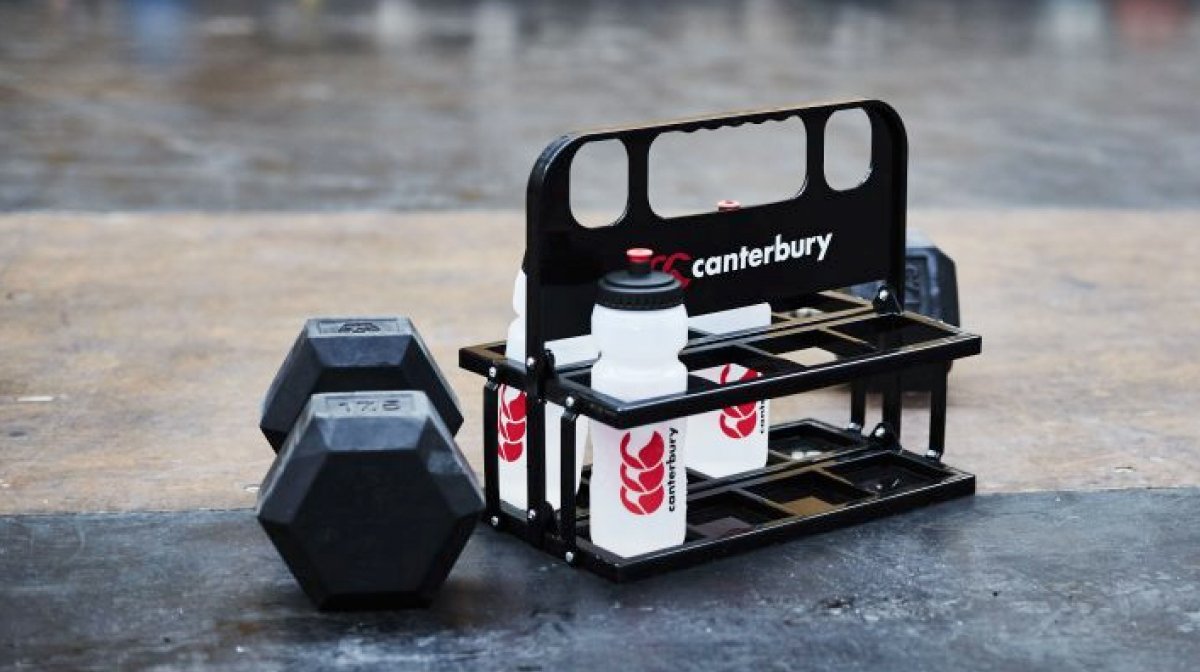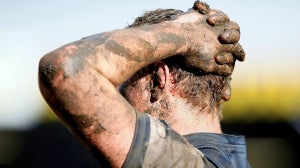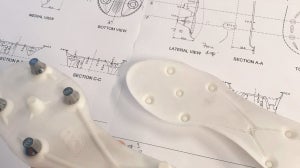
Hydration during and after exercise is hugely important to your performance as a competitive rugby player. Fluids can act as a valuable source of nutrients and electrolytes and even boost saliva production so you have more anti-microbes to fight infection.
Experts state that if players are more than two percent dehydrated in warm to hot conditions, their performance will be impaired. Your body requires fluids to regulate body temperature and prevent organ dysfunction and collapse.
Knowing when to take in water is vital, and over-drinking can lead to nausea, cramps, disorientation and fatigue – you can “drown” if you consume 7 litres of water!
Hydration during physical exercise
Because rugby is a sport of a stop-start nature (with periods of intense activity) and its players come in all shapes and sizes, it is important to be flexible on fluid intake. A competitor weighing in at 70-90 kilos should drink around 500-800ml per hour, but this figure needs to be adjusted if the player is heavier or the conditions are hotter and more humid.
Always weigh yourself so you know how much liquid you have sweated out during a game, and remember you will have depleted mineral reserves as you play.
Ideally, you should have access to a water bottle during prolonged stoppages and the half-time break; unlike a marathon runner, there is time to rehydrate during a match.
Aim for 250-500ml right before play commences and then 100ml or so every 10 minutes of play. Your water bottle should include 5-8 per cent of carbohydrates, with a small teaspoon of salt. Water absorption works best if the stomach is partially filled, so consume a light, easily digested snack within two hours of a game.
Hydration after a workout or game
Once the whistle blows or the training session has ended, be wary of the amount of water and nutrients you will continue to lose through sweating. The intake of carbohydrates will help your recovery process and replenish your energy stores; so add a dash of powder supplement to your post-workout or post-game water.
A protein shake will help you to restore your reserves too. Look at your pre-game weight and weigh yourself again to quantify how much fluid you have lost and how much you will have to take on – it is recommended that you drink 150 percent of the fluid deficit in the few hours after a game or training session.
Remember eating should also be accompanied with water to have maximum effect on your recovery.
Keeping track of your waterways
Knowing how you perform in a variety of conditions will help you to work out how to manage your fluid intake. Every workout session whether on a recovery day or one with intense gym training, should be documented for changes to your water intake and the effects of excretion through sweating.
You will have to weigh yourself before and after any exercise, and to change up the conditions in which you work out. It might be an idea to wear bulky clothing during a session once a fortnight to induce more sweating, and it’s certainly beneficial to tailor your drinks according to the severity of the workout.
Whatever you find out, make a note of your discoveries – each person is different and has different hydration needs – and steer clear of alcohol, which impairs your body temperature regulation and recovery from soft-tissue damage.
Alcohol increases bleeding and inflammation and as a diuretic like caffeine, increases your fluid losses through urination, delaying rehydration. Any water loss – let alone the 2-3 percent that is lost during the average game – will impair your decision-making and recovery time.
Make sure your urine is pale and clear at all times and keep to the 100ml an hour rule before, during and after training so you hit a minimum of 3 litres a day. Drink extra on and around game day.









